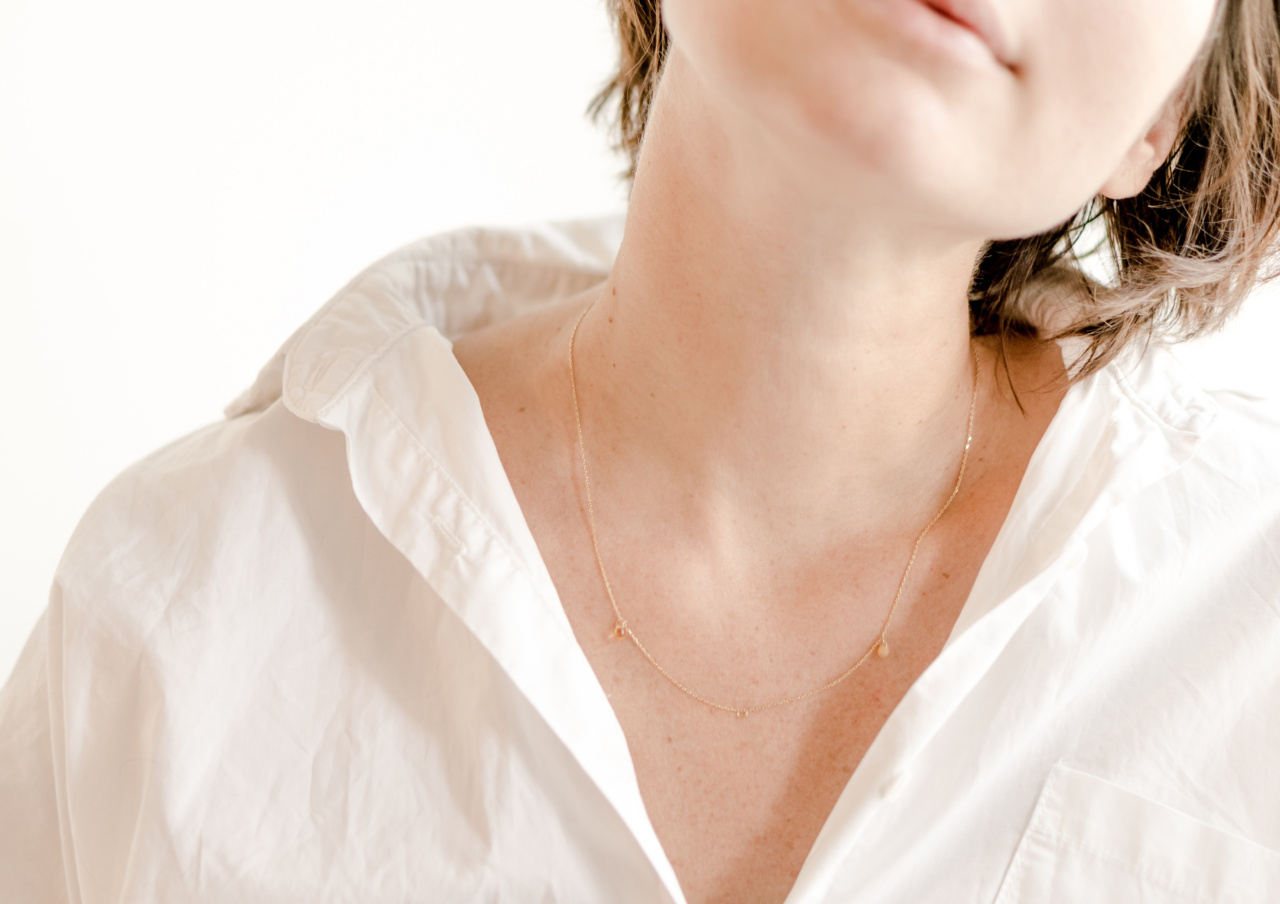When it comes to sun protection, most people focus on the face, arms, and legs, but often neglect the neck. However, the neck is an area that is frequently exposed to the sun’s harmful rays and requires equal attention and protection.
Here are several reasons why you should not neglect your neck when it comes to wearing sunscreen:.
1. Vulnerable to sunburn and skin damage
The skin on the neck is thinner and more delicate than other parts of the body, making it more susceptible to sunburn.
Prolonged exposure to the sun without adequate protection can lead to painful sunburn, premature aging, and long-term skin damage such as wrinkles, fine lines, and sagging skin.
2. High risk of developing skin cancer
The neck has a high concentration of exposed skin and is often neglected when applying sunscreen or protective clothing. This negligence increases the risk of developing skin cancer, particularly on the neck.
According to the Skin Cancer Foundation, cases of skin cancer on the neck have been on the rise in recent years, and protecting this area with sunscreen is crucial to reduce the risk.
3. Prevents premature aging
The skin on the neck is prone to premature aging due to its constant exposure to the sun’s harmful ultraviolet (UV) rays.
These rays can break down collagen and elastin, which are essential proteins responsible for maintaining the skin’s elasticity and firmness. Wearing sunscreen on your neck can help prevent the signs of aging, such as wrinkles, age spots, and loose skin.
4. Maintains an even skin tone
Uneven skin tone, including dark spots and hyperpigmentation, can also affect the neck area. Sun exposure can exacerbate these skin concerns, leading to an uneven complexion.
By applying sunscreen regularly on your neck, you can help prevent the formation of dark spots and maintain a more balanced and even skin tone.
5. Protects sensitive skin
For individuals with sensitive skin, the neck can be particularly prone to irritation and redness when exposed to the sun without protection.
Sunscreen acts as a protective barrier, shielding the skin from the harmful effects of UV radiation, preventing inflammation, and reducing the risk of skin sensitivity.
6. Minimizes the appearance of wrinkles
Wearing sunscreen on your neck can also help reduce the appearance of existing wrinkles. The sun’s UV rays can accelerate the breakdown of collagen and elastin in the skin, leading to the formation of wrinkles and fine lines.
By applying sunscreen daily, you can help preserve the skin’s elasticity and prevent the deepening of existing wrinkles.
7. Reduces the risk of sunspots
Excessive sun exposure can cause the development of sunspots, also known as solar lentigines, on the neck. These dark spots are caused by the overproduction of melanin in response to UV exposure.
By regularly using sunscreen with a high SPF on your neck, you can help prevent the formation of sunspots and maintain a more youthful complexion.
8. Enhances overall skin health
Protecting your neck with sunscreen is not just about preventing sunburn or slowing down the aging process. It is also crucial for maintaining and enhancing overall skin health.
Sunscreen helps to maintain the skin’s natural moisture barrier, preventing dryness, dehydration, and other skin issues caused by sun exposure.
9. Safeguards against photodamage
UV radiation is a major contributor to photodamage, also known as sun damage. The neck is often one of the most exposed areas to the sun, making it more vulnerable to photodamage.
This can lead to a variety of skin issues, including discoloration, rough texture, and the formation of visible blood vessels. Wearing sunscreen daily can safeguard against these damaging effects.
10. Sets a good example for sun protection
By paying attention to protecting your neck with sunscreen, you are setting a good example for those around you. Friends, family, and children often observe and imitate our behaviors.
By prioritizing sun protection on all exposed areas, including the neck, you can advocate for healthy sun habits and encourage others to do the same.




























